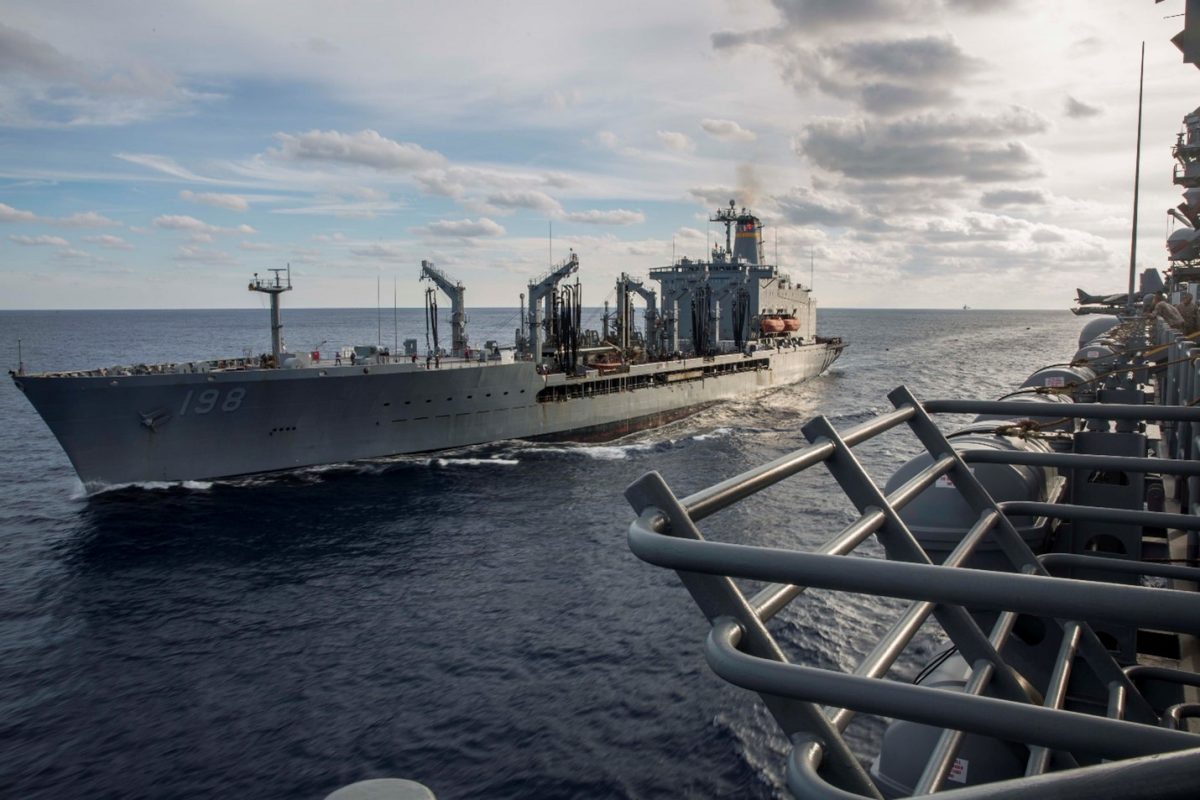On September 25, the US Navy ship Big Horn ran aground and partially flooded off Oman, leaving the Abraham Lincoln Carrier Strike Group without its primary fuel source. The Big Horn was the only US Navy oiler in the entire Middle East. Most Americans slept through our post-Cold War dividend, believing that friendly relations with those antithetically opposed to American values won over the worst of the world’s worst. That time has run out with recent events around the world challenging the idea that if we stay neutral and ignore threats, such as the Russian invasion of Ukraine, they will go away. Congress expanded funding for social welfare programs while failing to supply the money needed to, literally, keep our military afloat. Now Washington is faced with aiding Ukraine at a time when the size and strength of the US military is increasingly challenged.
Washington must assume that even a weakened Russia is taking notice of America’s failure to prepare for peace through strength. There is no doubt within the intelligence community this week that the Russia-China-Iran-North Korea axis is preparing to face off with the West. The remaining question is one of timing. Misunderstanding the nature of the threat and how Putin perceives the West may be Washington’s greatest weakness.
Russian President Vladimir Putin made three bets according to Dr. Junhua Zhang, a senior associate at the European Institute for Asian Studies. They are not unlike those made by Saddam Hussein before his invasion of Kuwait. At that time President Bush failed to forcefully send a message to Hussein to back down. President Biden has failed to reign in Putin despite modest administration efforts inside the White House National Security Council.
Putin bet that no matter what occurred after the start of his “special military operation” he would have buyers for his country’s oil and gas to finance his effort. He received assurances in advance and today China and India continue to purchase at discounted prices that are high enough to support his war machine.
Putin’s second bet may be short-lived but addresses Moscow’s immediate need as China is not parting with its Russian alliance. Several years after Putin’s invasion in Ukraine, Beijing continues its comprehensive support in diplomacy, finance, military, industry, and consumer goods. According to Reuters, Russia even allowed a Chinese toy factory to produce military drones, despite Beijing’s official protestations that “We are neutral, and we don’t deliver any weapons to any war party.”
Finally, Putin bet on us in the West. He gambled that Washington, and other western capitals, would say they opposed Russian aggression, but would be deterred from immediate and substantial assistance to Ukraine. Putin surmised his threat to use nuclear weapons would be enough to stop any extensive action on the part of the West. Although the West is stepping up, Putin remains undeterred in using long-range missiles to hit Ukraine. At the same time, Ukrainian President Zelensky doesn’t receive comparable support from the West to move deeper into Russian territory.
Some in the intelligence community are quietly discussing whether we are moving into a post-Westphalian rules-based order. Economic globalization, a lack of support in Washington for maintaining the most advanced military to deter aggression, and China’s emergence into the world order claiming leadership rights, all contribute to destabilizing the world.
Perhaps, there is a fourth bet. By weakening the European Union (EU) and the United States, along with the euro-dollar and western financial sectors, Moscow can attempt to participate in leading new economic, social, and political expansions elsewhere in the world. The BRIC countries appear to be one target susceptible to Putin’s overtures as can be seen in their supportive actions at the United Nations.
Earlier this month, following an interview after the Forum on United Cultures, Russian President Vladimir Putin again threatened the Western nations claiming that strikes on Russian territory meant direct participation by the Nort Atlantic Treaty Organization (NATO). It isn’t the first time the Russian leader has made such a threat. It failed to deter the West despite additional threats from other senior Russian officials, including the current Deputy Chairperson of the Russian Security Council Dmitry Medvedev, who claimed a nuclear response is possible. When backed into a corner Putin will strike out like a venomous snake, despite its impending death, says Rebecca Koffler, a former DIA Russian analyst and author of “Putin’s Playbook.”
Boris Bondarev, of the Jamestown Foundation, says “How the West responds to these is essential. Western states would benefit from responding the same way they have to the previous threats: take them into account but proceed from the fact that Putin himself is afraid of drastic and unpopular steps, whether in the political or military sphere.” The risk is that as the US military grows older and comparatively less capable over time, Putin’s threats could become reality should he see it as a last ditch effort to save the former Russian empire from dismantlement.
Daria Novak served in the U.S. State Dept.
Photo: U.S.S. Big Horn (U.S. Navy photo)
